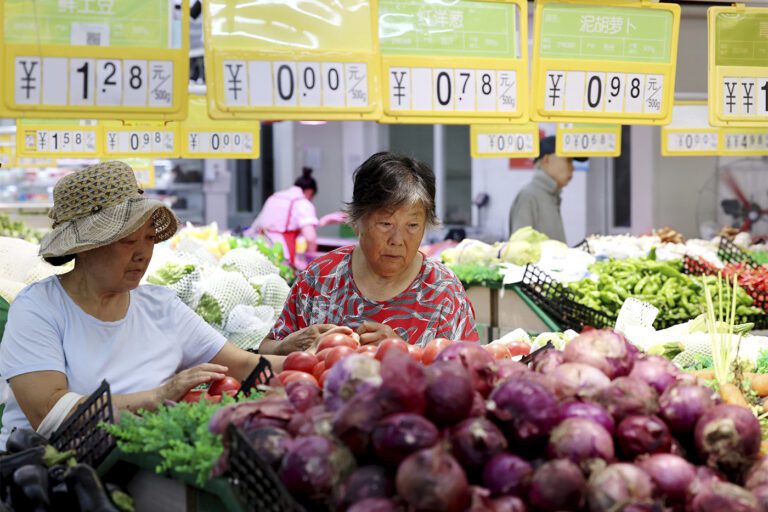While the United States is battling inflation, China—the world's second-largest economy—appears to be the opposite problem: deflation.
In July, consumer prices fell in China for the first time in two years. Several economic issues hit China after the lifting of the COVID-19 restrictions. There has been a drop in exports and the real estate market is in recession.
China's economy has sunk into deflationary territory.
But what exactly is deflation and why is it? people worry about that?
William Dickens, distinguished professor of economics and social policy at Northeastern University, explains that while the opposite of inflation may sound good, deflation is a problem you don't want to have…
Answers have been edited for clarity and brevity.
What is deflation?
Deflation is the opposite of inflation. We say that an economy is in deflation when the general price level falls. The general price level is measured by one or more indicators such as the well-known Consumer Price Index.
Is deflation different from deflation?
Deflation (collapse inflation) is the slowing of price increases. Deflation lowers prices.
Falling inflation is usually seen as a good thing. Most of the world's central banks like to keep inflation around 2%—lower than what most countries are experiencing today. However, inflation rates below 2% are avoided due to the risk of the economy falling into deflation.
You may think that falling prices were a good thing, but you have to remember that wages are also a price. During deflation, wages and prices fall so that purchasing power does not increase.
However, if you have a lot of debt, falling wages means people have to work harder to pay off the debt. It also means that people have less real purchasing power, so this leads to a reduction in consumer demand which puts further downward pressure on prices and wages.
Falling prices also mean that businesses have to sell more goods to pay off their debt. Often they cannot and are forced to go bankrupt. This causes more unemployment and again reduces purchasing power and demand.
This very vicious cycle hit Japan in the 1990s, causing over a decade of economic decline and then stagnation. China is a highly indebted country with a very weak banking system. Deflation can be devastating.
Why is deflation happening in China?
First, it might not be. A month of falling prices can be a statistical fluke. But conditions in China are ripe for deflation. Inflation was very low and external and domestic demand was weak. Domestic demand is weak because the economy has not recovered from China's disastrous COVID policies. Foreign demand is falling because Western nations want to disengage their economies from China for fear of major economic problems if China tries to bring mainland Taiwan under control by force or if Chinese claims to waters in the South China Sea South China lead to confrontation. Russia's invasion of Ukraine was a lesson to the world in how unpredictable authoritarian governments can be.
Will this affect the US economy?
If China enters a full period of deflation, there is likely to be some recovery in the US and world economies. The US would be less affected than other countries because we don't export much to China, so a collapse in Chinese demand would have little direct impact on the US, third world exporters of raw materials and food would be more affected. Many of these same countries are saddled with crippling debt to China. This can lead to some defaults in the developing world.
More worrisome are the potential global economic effects—especially a financial panic. I'm going to assume that won't happen. China is a net lender to the world. Its debt is mainly held internally. I doubt that any major Western bank would have a problem dealing with a Chinese default, which could be followed by a financial meltdown. I am more concerned about the exposure of Western banks to the debt of those developing countries that are likely to suffer from lower Chinese demand.
What are you looking for to see if China is really falling into deflation?
Another month or two of falling prices and it will be hard to call it a fluke. The fallout will take time and I suspect the government will try to cover up the problem and cover up the problem. Being an authoritarian state, they have more tools at their disposal than a Western government.
Are you worried?
Not yet. And as far as I'm concerned, it's more about the dog's problems than pure economics.
Cyrus Moulton is a reporter for Northeastern Global News. Email him at c.moulton@northeastern.edu. Follow him on Twitter @MoultonCyrus.



